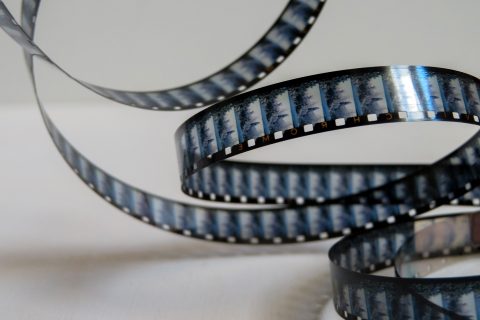Studio Arts (MFA)
Program overview
The MFA in Studio Arts represents the culmination of academic training in the visual arts. Alongside exemplary production skills within a given medium, our graduate students develop sophisticated understandings of the conceptual underpinnings of their work; of the social significance of their activities; and of the historical lineage and antecedents of their ideas. Housed in the Faculty of Fine Arts—one of North America’s largest and most respected schools for graduate fine arts study—the course-based MFA program appeals to practicing artists who wish to refine personal content and forms through critical inquiry. Challenge yourself in a studio-oriented environment in the three-year disciplinary program, distributed among seven concentrations: Fibres and Materials Practices, Intermedia, Painting and Drawing, Photography, Print Media, and Sculptures and Ceramics. You will be encouraged to reflect on tradition, experiment with new materials and technologies, develop interdisciplinary collaborations, and explore shifting modes of exhibition and intervention. Your position as a professional artist will be strengthened in a self-directed process that will also prepare you for the multiple roles in contemporary art practice including teaching, curating, criticism, publishing and research.
Program structure
Degree Requirements
Fully-qualified candidates are required to complete a minimum of 60 credits.
Please see the Studio Arts Courses page for course descriptions.
Studio Arts MFA (60 credits)
| 24 | credits chosen from the Studio Concentration |
| 3 | credits:
|
| 21 | credits chosen from the following courses:
|
| 12 | credits
|
Admission requirements
Admission Requirements
- BFA or BA with a Fine Arts or Fine Arts and Art History major, or an approved equivalent, from a recognized institution and with a minimum B average in the major area.
- Undergraduate experience and proficiency relevant to the area of specialization.
- Proficiency in English. Applicants whose primary language is not English must demonstrate that their knowledge of English is sufficient to pursue graduate studies in their chosen field. Please refer to the English language proficiency page for further information on requirements and exemptions.
Application process
Application deadlines

FALL
January 13

WINTER
n/a

SUMMER
n/a
Priority will be given to complete applications submitted by the deadline. In some cases, programs may continue to accept applications as long as there is space available.
International students: Considering the waiting period involved in meeting the entry requirements to Canada and Quebec, we strongly encourage international applicants to apply early and submit supporting documents prior to the deadline.
Tuition & funding
Tuition and fees
Tuition and fees of the program may depend on your student status, among other key factors. Estimate these costs based on the most common situations.
Awards and funding
Funding packages are generally available for students in thesis-based programs. Course-based students may be eligible for a number of donor awards, and may consult with their department for program-specific opportunities.
Out-of-province students
Get $15,000 in special funding for 60-credit master's programs. Learn more
Other programs of interest

Develop the tools and visual literacy necessary for aesthetic, historical and cultural analysis of cinema and audiovisual media alongside a dynamic group of students. Research and create from your own areas of interest in film.
Department
Mel Hoppenheim School of Cinema
Faculty


